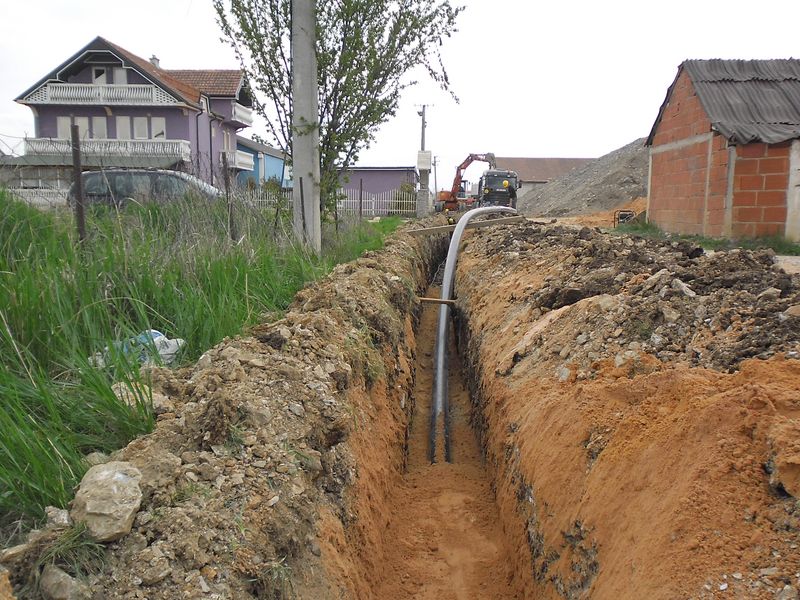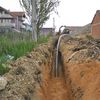Kosovo:Rural Water and Sanitation Support Programme (RWSSP) Kosovo
Disciplines
-
Environment & Sustainability
-
Sanitation
-
Water Supply
Companies
Dorsch International Consultants
Client
Swiss Agency for Development and Cooperation (SDC)
Duration
From 2014 to 2020Project Activities
Water Supply
- Increase the population with access to water supply systems managed by RWCs;
- Increase the access of ethnic minorities to water supply systems managed by RWCs;
- Provision of RWC managed water supply systems for 80,000 people in rural areas;
- Upgrade and rehabilitate RWC managed water supply systems for 240,000 people in rural areas;
Protection of Water sources and Water use efficiency
- Reduction of NRW through development and implementation of NRW reduction plan based on DMAs,
- Integration of water source protection in the spatial planning of 2 Municipalities;
Preparation and dissemination of water source protection guidelines
- Improvement of the capacity of RWCs in water source protection and management of rural wastewater treatment;
- Increase of the collection rate in targeted district metered areas (DMA) of partner RWCs to 80%;
- Increase of the percentage of customers covered by targeted DMAs to 10% in 4 RWCs;
- Increase of the percentage of rural customers in targeted DMAs to 40% in 4 RWCs;
- Improve water quality management in all RWCs and implement related procedures in rural networks;
- Collaboration with local civil society structures, municipal authorities, and Regional Water Companies in conducting waste clean-up activities around drinking water sources and related community awareness campaigns of water pollution risks from improper waste disposal.
Sanitation
- Realisation of up to 4 pilot systems for rural wastewater collection and treatment managed by RWCs;
Institutional support
- Establishing PIUs in all seven RWCs to manage rehabilitation projects for water and sanitation services;
- Enabling of all RWCs to operate and maintain the systems under their control;
- Participation of all RWCs in regional exchange activities;
- Cooperation between 2 RWCs and other utilities in the region.
Energy Use
- Increasing energy efficiency measures included in RWC operations and increased use of renewable energy sources
Contact
Dorsch International Consultants GmbH
München (Headquarters)
80687 München
Germany
Phone: +49 89 5797-0
Fax: +49 89 5797-800
E-Mail: info@dorsch.de
Description
Despite Kosovo`s advanced legal and regulatory framework in the water sector, regional water companies (RWCs) still struggle with operating sustainably. About 40% of the population in Kosovo, mainly in rural areas, lacked access to piped water supply systems and only around 65% of the total urban population and 42% of the rural population had access sewage. Collection rate was about 60% and water losses averaged around 61%.
Wastewater in rural areas was disposed of into open earth channels or old damaged septic tanks with no monitoring of quality or quantities which contaminates surface and groundwater, resulting in poor-quality drinking water from wells.
The Rural Water and Sanitation Support Programme (RWSSP) was carried out in phases, two of which were covered by this project. Its main aims were to:
- Improve water supply and achieve equitable access to safe drinking water from 66% to 80% of the general population and from 50% to 65% for minority groups
- Achieve access to adequate sanitation and manage and improve rural wastewater treatment systems.
- Ensure sustainability of water and sanitation services.
- Enhance the performance of water service companies (RWCs, WSRA, and NIPH) and ensure their ability to provide sustainable safe water supply and sanitation services to all citizens in compliance with the objective of universal access, taking into account environmental issues, achieving effective capacity building.
- Protect water resources and reduction of non-revenue water and increase water-use efficiency.
- Increase use of renewable energy and reduce energy use thus improving energy efficiency
- Reduce adverse environmental impact of solid waste and reduce their release to water sources.

